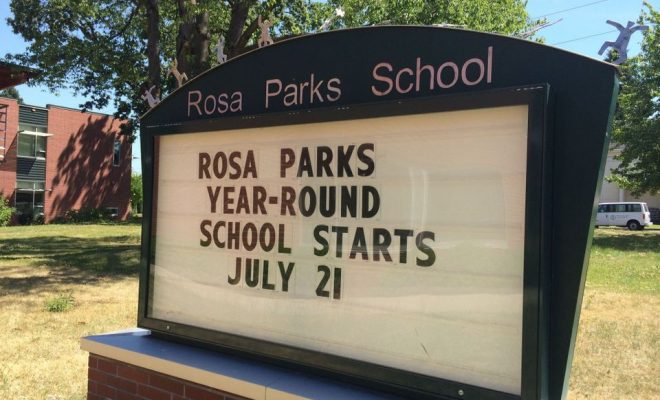The Four Pillars of Flipped Learning
Note: Today’s guest post was written by Jessica Yarbro, George Mason University, Patrick McKnight, Ph.D., George Mason University, Kari M. Arfstrom, Ph.D. Executive Director, Flipped Learning Network and Katherine McKnight, Ph.D. Pearson’s Center for Educator Learning & Effectiveness.
While various new learning styles are making headway in the classroom, none more than Flipped Learning has made such an impact. In fact, a 2014 survey, conducted by the Flipped Learning Network™ (FLN) and Sophia Learning, revealed that in a matter of two years, the FLN has seen a 700% growth in teachers joining the FLN community, which now is comprised of more than 20,000 educators. Additionally, nearly 100% of teachers recognize the term and almost 80% indicate they have “flipped” at least one lesson in the last school year.
FLN defines Flipped Learning as a pedagogical approach in which direct instruction moves from the group learning space to the individual learning space, and the resulting group space is transformed into a dynamic, interactive learning environment where the educator guides students as they apply concepts and engage creatively in the subject matter.
FLN leaders determined that there is a difference (and that they are not interchangeable) between Flipped Learning and the Flipped Classroom – which has been misused by many. Flipping a class can lead to Flipped Learning, but it’s not a definite. Many teachers may already flip their classes by having students read text outside of class, watch additional videos, or solve extra problems, but to engage in Flipped Learning, teachers must incorporate four pillars into their practice: (F.L.I.P) Flexible Environment, Learning Culture, Intentional Content and Professional Educator.
The Four Pillars
Flexible Environment
Educators create flexible spaces where students choose when and where they learn. Additionally, educators who flip their classes are flexible in their expectations of student timelines for learning and in their assessments of student learning.
Learning Culture
In a Flipped Learning model, in-class time is dedicated to exploring topics in greater depth and creating rich learning opportunities. As a result, students are actively involved in knowledge construction as they participate in and evaluate their learning in a manner that is personally meaningful.
Intentional Content
Flipped Learning Educators determine what they need to teach and what materials students should handle on their own. Educators use Intentional Content to maximize classroom time in order to adopt methods of student-centered, active learning strategies, depending on grade level and subject matter.
Professional Educator
The role of a Professional Educator is even more important, and often more demanding, in a Flipped Classroom than in a traditional one. During class time, they need to observe students, providing them with instant feedback and an assessment their work. While Professional Educators take on less visibly prominent roles in a flipped classroom, they remain the essential part that enables Flipped Learning to occur successfully.
While the Flipped Learning model may not work for every class, the model represents an innovative approach to teaching with the potential to create active, engaged and learning-centered classrooms. FLN’s four suggested pillars serve as ways to help educators successfully implement a Flipped Learning model. What are some other suggestions that you’ve seen being implemented in a successful Flipped Learning classroom?
Read all of our posts about EdTech and Innovation by clicking here.





